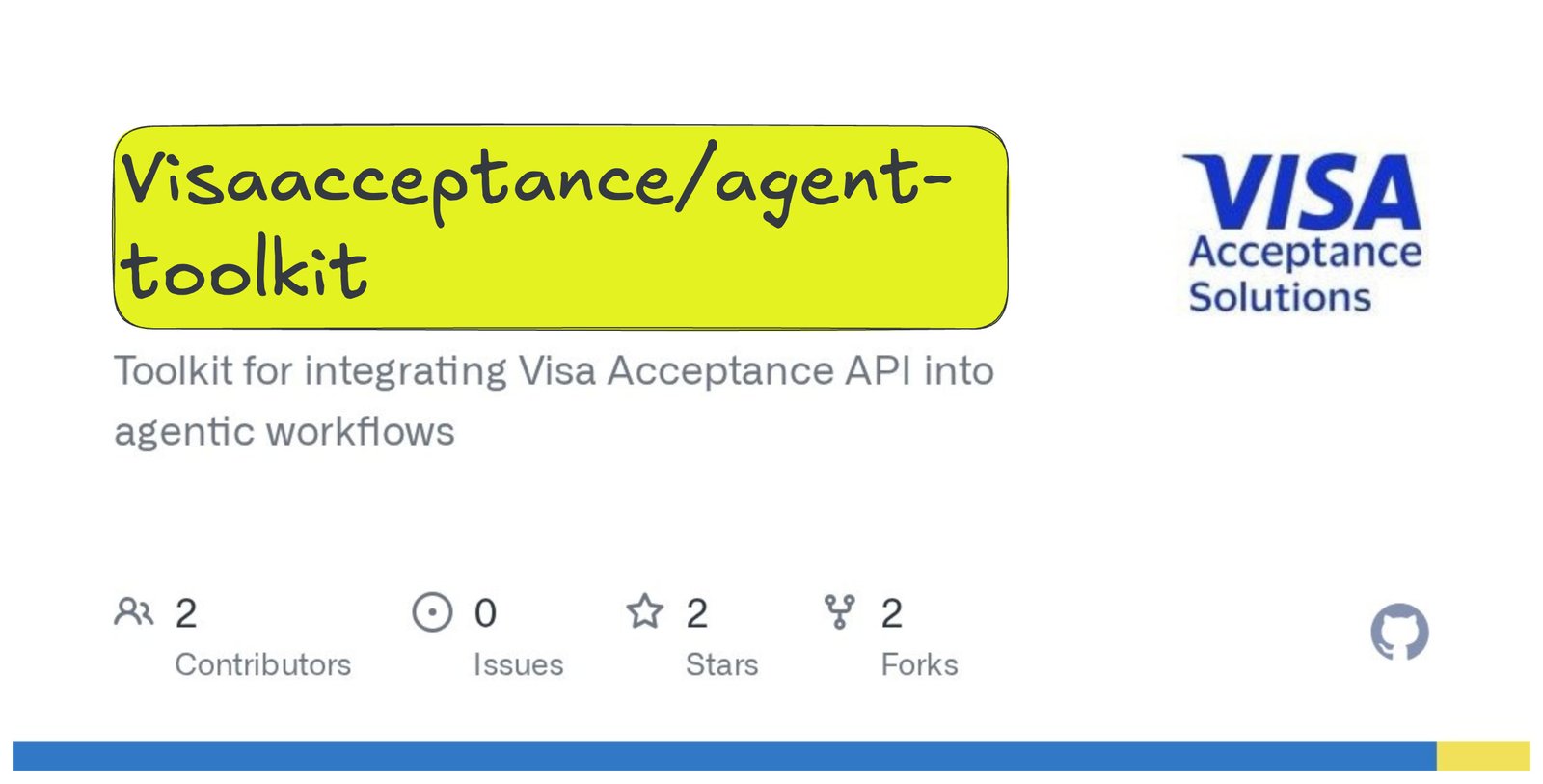Business
South Korean chipmakers accelerate facility investments amid booming AI demand

Seoul [South Korea], : South Korea’s leading semiconductor companies are increasing their investments in production facilities, driven by strong forecasts for rapid growth in the artificial intelligence chip market, reported the Korea Herald.
Samsung Electronics is reviewing plans to restart construction of chip manufacturing plants in Korea, while SK hynix has recently begun building a new back-end processing facility.
Citing industry sources, the Korean English daily said that tech giant Samsung is preparing to resume work on its Pyeongtaek Campus Line 4 , where construction was halted last year.
P4, the company’s fourth major chip facility at the site, is divided into four phases. While Phases 1 and 3 are nearing completion, sources have reported that work orders have recently been issued for Phases 2 and 4, with full-scale construction expected within two to three months, the news platform added.
Initially planned for foundry production, two areas of the P4 facility are now expected to be converted into DRAM production lines. These will manufacture sixth-generation 1c DRAM using a 10-nanometer process, a technology Samsung confirmed it has successfully developed for next-generation high bandwidth memory chips.
Vice Chair Jun Young-hyun, who oversees Samsung’s semiconductor division, visited the U.S. last week and met with Nvidia, signalling the company’s commitment to closing the gap with competitors and securing new HBM chip orders.
Phase 4 is projected to have a monthly capacity of 80,000 wafers, accounting for 40 per cent of P4’s total capacity of 200,000 12-inch wafers.
Although not officially confirmed, reports suggest Samsung is also considering restarting construction of its fifth plant at the Pyeongtaek Campus, known as P5. Groundwork for P5 began in 2023 but was halted early last year, the news platform added.
The P5 facility, requiring an estimated investment of over 30 trillion won , is designed to be a complex fab for DRAM, NAND flash, and foundry production.
“We are continuously reviewing various scenarios for resuming construction of our facilities,” a Samsung official said, quoted by Korea Herald.
The report added that SK hynix is also scaling up production capacity. The chipmaker is expected to complete construction of its new M15X plant in Cheongju later this year. This facility will begin producing fifth-generation 10nm-class DRAM chips for next-generation HBM4 products, with a planned monthly capacity of approximately 90,000 wafers.
Additionally, SK hynix is investing in a new back-end production facility, dubbed “P&T 7,” also located in Cheongju. The site will enhance packaging capabilities to boost the performance and energy efficiency of advanced chips.
The DRAM market is expected to remain strong in the second half of the year, driven by demand for HBM chips, which play a key role in powering AI processors.
According to the Export-Import Bank of Korea, the global AI semiconductor market is projected to grow from USD 41.1 billion in 2022 to USD 133 billion by 2028, the Korea Herald added.
This article was generated from an automated news agency feed without modifications to text.
Business
Deep Dive: The Checkout Killer? Visa’s AI Agents Are Open for Business: By Sam Boboev

Imagine
telling an AI assistant to “plan my trip to Miami,” then sitting back as it finds the perfect flight, hotel, and even buys that new fishing reel you wanted – all on its own. That’s the vision behind Visa’s Intelligent Commerce, a new platform that lets AI
“agent” software find, shop, and buy on your behalf. At Visa’s recent Product Drop 2025 event, CEO Ryan McInerney and Chief Product Officer Jack Forestell unveiled this initiative as a “new way to buy with AI in the same trusted, secure way to pay”. It’s Visa’s
big bet on agentic commerce, where autonomous AI agents handle the whole shopping journey for consumers. The goal? To close the “discovery – to – purchase” gap – so when an AI finds you the perfect item, it can actually check out and pay seamlessly, with all
the fraud protections and trust of Visa’s network.
One thing’s for sure, the commerce UX is evolving. In a few years, we might reminisce about how we used to spend hours comparison – shopping and filling out forms, while our AI butlers handle the mundane purchasing in the background. And Visa will be quietly
running the register for all those machine – mediated transactions – taking its (hopefully reduced) cut, but at far greater volume.
New world, same Visa? Not exactly, but Visa is doing what savvy incumbents do – skate to where the puck is headed. And in 2025, that puck is an autonomous agent eager to buy stuff for us. Get ready – your next customer might not be human, and now
is the time to plan for it.
In this deep dive, we’ll break down what Visa Intelligent Commerce is offering, why it matters for the fintech and payments ecosystem, and where it might be headed – including how it intersects with Web3’s world of programmable money and crypto. Let’s dig
in.
Visa’s Intelligent Commerce
Visa’s Intelligent Commerce initiative is essentially a developer platform and partner program to enable AI – driven buying. It introduces a suite of five APIs – spanning tokenization, authentication, personalization data, payment instructions, and payment
signals – designed to let AI agents transact as securely and smoothly as any human shopper. Visa also announced an agent onboarding framework (through a partner program) that will vet and certify AI agents before they can tap into the network. And they didn’t
go it alone – Visa lined up key partnerships with big names across AI and fintech to jumpstart this ecosystem. They’re collaborating with OpenAI to help set agentic commerce standards and enable use cases on OpenAI’s platforms. They’re working with Stripe
(a leading payments processor already experimenting with agents) to adopt Visa’s solution and drive agent – based payments. Perplexity AI, a fast – growing AI search platform, is integrating Visa’s personalization APIs to make its shopping recommendations
more tailored. Ramp, known for business finance, is exploring B2B agent use cases with Visa. And Scale AI is partnering on the infrastructure side to support enterprise – grade agent commerce. In short, Visa is rallying both AI innovators and traditional payment
players to build out an “agentic commerce” network backed by Visa’s trust.
So what do these new APIs actually do?

Visa described five core services that together give an AI agent the same capabilities a human user has in e – commerce today – with extra guardrails. Here’s a quick rundown –
-
AI – Ready Cards (Tokenization & Authentication) – Visa is upgrading its tried – and – true tokenization and user authentication tech (the “workhorses” of digital payments) for the agent era. Tokenization means your 16 – digit card number gets replaced
with a unique digital token. In this case, Visa will issue a token specific to your AI agent once your bank verifies “you are you”. That token is bound to your agent and locked by default – it only activates for purchases when you (the human) give your agent
permission. Meanwhile, strong authentication (think Visa Secure, 3 – D Secure, biometrics, etc.) is built in so that when you first “onboard” your card to an agent, your bank verifies it’s really you and approves enabling that agent. In essence, your AI assistant
gets its own Visa card token that it can use, but only under your explicit consent and only with that trusted agent platform. -
Personalization (Data Tokens) – One big advantage of an AI shopping for you is that it can know your preferences. Visa has a service called Data Tokens which takes insights from your purchase history (e.g. brands you like, hotels you prefer, your dining
tastes) and packages them into privacy – preserving “insights” an agent can use. Importantly, Visa emphasizes you stay in control of your data – you must opt in and consent to share these personalization tokens, and you can turn them off anytime. The data
tokens don’t expose your raw transaction history; they’re more like hints (“user prefers boutique hotels over budget options”) that an AI can plug into its prompts to refine recommendations. In the demo, once the user toggled on personalization, the agent’s
travel suggestions immediately improved – no more beach hotels (which the user hates) and more sushi restaurants and activities that matched his actual interests. The takeaway – Visa is injecting its rich transaction data into the AI’s logic – with user permission
– to make agent – led shopping feel eerily spot – on (and to save you from endless irrelevant search results). -
Payment Instructions – This is a brand new API Visa built to serve as a “digital handshake” of trust between user and agent. When your agent is ready to buy something, it will present you with a summary – the items, prices, merchant, etc. – and ask for
your go – ahead. Visa’s Payment Instructions API will then record the exact purchase parameters you approved (the who/what/when of that transaction) and store it as a signed record. Think of it as the agent’s permission slip – it proves the AI had your authorization
to make that specific purchase. This instruction is basically the user’s intent, formally captured. It ensures that later, if there’s any dispute (“Hey, did my AI just buy the wrong flight?”), there’s an authoritative log of what you actually agreed to. It
also limits what the agent can spend your money on – a clever way to prevent a runaway bot from buying 100 TVs on your card. Visa is essentially formalizing, “Yes, my user said it’s OK to buy
these items under these conditions.” -
Payment Signals – Finally, when the agent goes to actually charge the card token at a merchant’s checkout, Visa’s Payment Signals API comes into play. Right before payment, the agent sends Visa a “purchase signal” describing the pending transaction (merchant,
amount, etc.). Visa’s system then matches it against the stored payment instruction you approved earlier. If everything lines up correctly, Visa unlocks the token for that one transaction and lets the payment proceed to the merchant. If something doesn’t match
(say the price or merchant is different), the agent won’t get authorization to charge. This Payment Signals step also shares rich context with the bank, merchant, etc., about the transaction – helping with fraud checks, posting the transaction details properly,
and post – purchase servicing. Essentially, it links the dots for all parties – the issuer and merchant see that
this transaction was initiated by a trusted agent and conformed to the user’s instruction, which makes it far more likely to be approved and not disputed. The result should be fewer false declines, less fraud, and no more mystery “who made this purchase?”
confusion in an agent – driven transaction.
Taken together, these components form a full agent – commerce pipeline. The first time you use an AI agent to buy something, you’ll go through a one – time setup – securely add your Visa card to the agent (via a tap or scan), authenticate with your bank,
and set any limits or preferences. Visa then provisions the token and from that point on, your agent is “payment – enabled.” Going forward, the flow is – you ask agent for something → agent finds it → agent asks your permission to buy → you confirm (maybe
with a quick authentication) → agent completes purchase in the background. From the user’s perspective, it’s a conversation followed by a simple confirmation.
Behind the scenes? A lot of heavy lifting by Visa’s APIs to make it feel magic.
Disclaimer:
Fintech Wrap Up aggregates publicly available information for informational purposes only. Portions of the content may be reproduced verbatim from the original source, and full credit is provided with a “Source: [Name]” attribution. All copyrights and
trademarks remain the property of their respective owners. Fintech Wrap Up does not guarantee the accuracy, completeness, or reliability of the aggregated content; these are the responsibility of the original source providers. Links to the original sources
may not always be included. For questions or concerns, please contact us at sam.boboev@fintechwrapup.com.
Business
The French government is on the brink – and Le Pen is the only winner | Paul Taylor

François Bayrou may have thought it was a smart pre-emptive move to call a parliamentary vote of confidence in his minority government ahead of a planned national protest day on 10 September and the start of a fraught parliamentary budget season.
Determined not to meet the same fate as his predecessor who was toppled by parliament last December, the French prime minister appears to have chosen political hara-kiri instead. His near-certain ejection by a hung parliament on Monday (8 September) is set to turn a smouldering political deadlock into a blazing crise de régime.
France’s Fifth Republic constitution, framed by Gen Charles de Gaulle in 1958 to create a strong executive and a pliant legislature, has ceased to deliver stable governments. Without a change in the system, France faces extended political paralysis. In the meantime, it seems incapable of resolving a chronic fiscal crisis that is starting to worry financial markets. The finance minister, Éric Lombard, last week declined to rule out having to seek an IMF bailout before abruptly back-pedalling when investors took fright.
If, as expected, the veteran centrist prime minister is ousted, President Emmanuel Macron has no easy option to steady the ship of state, pass a budget to curb the swollen deficit, and preserve his liberal legacy of supply-side economics and pension reform.
Macron could appoint a new prime minister – his fourth in two years – but there is no sign that France’s political parties are willing to compromise on a workable budget. He could dissolve parliament again and call a general election – the third in three years – but that would probably produce no more decisive an outcome than the snap poll he called last year in an impetuous blunder.
The president had sought “clarification” from voters after far-right populists made big gains in the European parliament elections. Instead of clarification, the legislative ballot cast the country into greater confusion, producing a three-way split between roughly equal blocs – a leftwing alliance dominated by Jean-Luc Mélenchon’s radical France Unbowed (LFI), Macron’s own centrist and centre-right supporters, and Marine Le Pen’s National Rally (RN).
Macron, who cannot run again after his second five-year presidential term, which could last until spring 2027, has ruled out another option – resigning from office and precipitating an early presidential election. How on earth did the charismatic, still only 47-year-old president get himself into such a mess?
He and Bayrou seem to have misjudged both the public mood and the parliamentary arithmetic. They calculated that either the RN or the centre-left Socialist party would keep the government in office since each had good reason to avoid another election – the former because Le Pen would be disqualified from standing due to a fraud conviction, the latter because it risked losing many seats. But neither wants to act as a life raft for an unpopular prime minister who proposed axing two public holidays and freezing public spending next year to narrow the fiscal gap.
Bayrou gambled that by dramatising France’s soaring debt, he could persuade the public and the political class of the need for drastic measures. Capitalising on public anger over those proposals, an anonymous collective called Bloquons tout (Let’s Block Everything) has called for strikes and demonstrations to bring the country to a standstill next Wednesday, seeking to revive the spirit of the leaderless gilets jaunes (yellow vests) movement that staged months of guerrilla protests against a planned carbon tax in 2018.
Although some of those calls appear to have originated on far-right social media accounts, Mélenchon has piled in behind the blockade campaign in the hope of forcing Macron’s removal. So far, the mood seems sullen and distrustful rather than insurrectionary. It’s not clear that unionised public sector workers have the stamina to sustain a campaign of strikes.
after newsletter promotion
The Socialists are trying to project themselves as a constructive alternative to either Bayrou or snap elections. The party’s leader, Olivier Faure, says the president should appoint a Socialist premier to implement a “counter-budget” featuring a wealth tax on large fortunes, a suspension of the raising of the retirement age enacted in 2023, a cut in welfare taxes and smaller public spending cuts than Bayrou envisaged. Macron is determined not to do that, but he has urged his centrists to reach out to the Socialists to try to draw them into joining or supporting a government.
Centrist leaders are urging the president to avoid a fresh election, in which the RN would probably further increase its score at their expense. But French parties have neither the German and Dutch political culture of painstakingly negotiating a compromise programme for a legislature, nor the Italian tradition of backing a government of technocrats for a limited time to carry out unpopular but necessary reforms.
A prolonged political crisis will only fuel support for the nationalist, anti-immigrant right and further discredit the jaded mainstream parties. With toxic social media echo chambers and a growing US-style far-right media railing against crime, immigration and Islam, Le Pen and her young protege Jordan Bardella seem ever closer to winning power.
Business
South West Water taken to court over cryptosporidium outbreak in Devon | Devon

South West Water is being taken to court over a parasite that infected the water supply in parts of Devon last summer and left dozens sick.
More than 140 people were confirmed to have the diarrhoea-type disease, which also causes stomach pains and vomiting, typically lasting for about two weeks. Four people were hospitalised at the time.
About 16,000 households and businesses in the Brixham area were told by the water company not to use their tap water for drinking without boiling it first.
A water tank at Hillhead reservoir had been found to contain the parasite, the company said at the time. The contamination caused mass disruption in the area, with holidaymakers cancelling their guesthouse bookings and a school having to shut.
The Drinking Water Inspectorate (DWI) said the summons had been issued to the company for prosecution for potential offences under section 70(1) of the Water Industry Act 1991. This makes it a criminal offence for a water company to supply water that is unfit for human consumption.
Marcus Rink, the chief inspector of the DWI, said: “The Brixham incident was serious with significant impact on the public and the wider community. Accordingly, I consider it appropriate to pass the matter to the court to consider the evidence in the public interest.”
Caroline Voaden, the Liberal Democrat MP for South Devon, applauded the DWI’s decision, saying: “I am pleased to hear that the Drinking Water Inspectorate has decided to take South West Water to court over the cryptosporidium outbreak in Brixham last year. It’s important we find out exactly what South West Water knew, and when, and why they told people the water was safe to drink when it wasn’t.
“Many of my constituents still don’t trust the drinking water and are paying for bottled water more than a year on from the outbreak. This incident affected the whole community, damaged businesses, hurt the local economy and, most importantly, made many people severely ill. It’s taken a long time to get to this point, but finally, we are seeing South West Water brought to account.”
A spokesperson for South West Water said: “We will reflect on this summons. South West Water has cooperated fully with the Drinking Water Inspectorate from the outset of this incident to help in its investigations.
“We take this incident extremely seriously, and we will continue to engage fully in response to these legal proceedings. In the meantime, our focus remains on delivering clean safe drinking water to our 2 million customers across Cornwall, Devon and the Isles of Scilly.”
-

 Business1 week ago
Business1 week agoThe Guardian view on Trump and the Fed: independence is no substitute for accountability | Editorial
-
Tools & Platforms4 weeks ago
Building Trust in Military AI Starts with Opening the Black Box – War on the Rocks
-

 Ethics & Policy1 month ago
Ethics & Policy1 month agoSDAIA Supports Saudi Arabia’s Leadership in Shaping Global AI Ethics, Policy, and Research – وكالة الأنباء السعودية
-

 Events & Conferences4 months ago
Events & Conferences4 months agoJourney to 1000 models: Scaling Instagram’s recommendation system
-

 Jobs & Careers2 months ago
Jobs & Careers2 months agoMumbai-based Perplexity Alternative Has 60k+ Users Without Funding
-

 Education2 months ago
Education2 months agoVEX Robotics launches AI-powered classroom robotics system
-

 Podcasts & Talks2 months ago
Podcasts & Talks2 months agoHappy 4th of July! 🎆 Made with Veo 3 in Gemini
-

 Funding & Business2 months ago
Funding & Business2 months agoKayak and Expedia race to build AI travel agents that turn social posts into itineraries
-

 Education2 months ago
Education2 months agoMacron says UK and France have duty to tackle illegal migration ‘with humanity, solidarity and firmness’ – UK politics live | Politics
-

 Podcasts & Talks2 months ago
Podcasts & Talks2 months agoOpenAI 🤝 @teamganassi





















